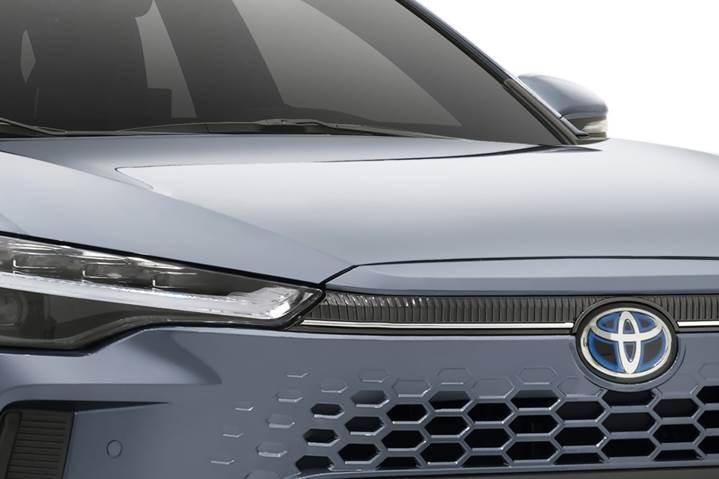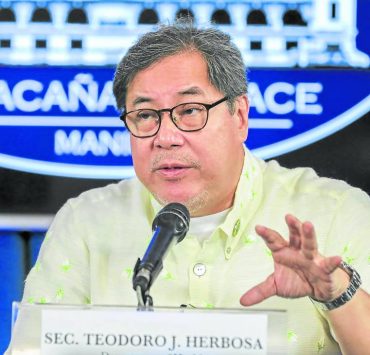LEGACY ADVANTAGE

I remember those days when my friends and I went to the same elementary and high schools. Not that it was our personal choice, but a decision made by our parents and grandparents who were long-time residents of southern Metro Manila, and thus went to the same schools we were enrolled in. That, and also these institutions were close to our houses. So, our elders more or less knew the kind of education we would be getting if we enrolled in their schools. The system wasn’t perfect, but it was consistent, familiar, proven, and above all, we were safe.
And isn’t it such a Pinoy thing to latch onto something that has become so familiar and dependable that only an act of God, as it were, would make us change our minds about it? I guess the same is true about the choice of cars. When you become the most reliable and trusted car brand in this country, your competition must move heaven and earth to make Pinoys change their minds.
The Toyota brand finds itself in this enviable spot in the Philippine market. The Japanese carmaker has rolled out model after model throughout the decades, and I quite honestly can’t remember a single one that has bombed at the local tills. Credit, of course, goes to the savvy R&D, engineering, and marketing people who have gotten the “kiliti” of the vast majority of the Philippine motoring public.
Loyalty is a two-way street, though, and I credit motoring Pinoys of all ages and classes for helping cement Toyota’s street cred via word-of-mouth, and paving the way for the new generation of mobility users to make Toyota as their top-of-mind brand.
With that said, there are forces at play right now in the mobility scene that are even bigger than the world’s most prolific carmaker. These forces make even a global powerhouse take pause and rethink the way it makes things. I’m talking about the environment, climate change, pollution, and sustainability on a global scale. These are the forces that compel the most powerful governments to meet and make sweeping agreements on.
These forces have certainly altered the way Toyota has realigned its manufacturing priorities, especially in this corner of Southeast Asia. Wasn’t it over 15 years ago that Toyota Motor Philippines introduced its first hybrid in the country, in the form of the globally popular Prius, and that over the course of the next decade or so, no other hybrid from Toyota followed (except for the smaller Prius C, in 2012)? In 2019, the Corolla Altis hybrid was introduced. But then, just as we slowly emerged from the Covid pandemic, TMP rolled out its new hybrids in quick succession, such that when 2023 was about to become 2024, TMP offered a hybrid variant for just about every model.
And so now, as Toyota in the Philippines enters into its “golden age of hybrids,” one would think that change-averse Pinoy motorists would start to question and doubt Toyota. Well, it turns out that Filipinos really wouldn’t mind change, as long as the ones leading the charge are the brands they trust the most.
I myself have talked to several owners of Toyota cars powered by traditional internal combustion engines (ICEs) who also own a Corolla Cross HEV, and they told me that they would only risk buying hybrid electric vehicles (HEVs) or battery electric vehicles (BEVs), if they were made by Toyota. In 2023, 50 percent of Corolla Cross buyers went for the hybrid variant (considering there had been supply issues of Corolla Cross HEV, which normalized towards the second half of 2023). That’s a solid sign of the “legacy advantage,” and that hybrids have definitely arrived for the Toyota brand.
Toyota knows its hybrid stuff. Its history with the hybrid system goes way before its introduction of the Prius in 1997. Automotive historians documented Toyota tinkering with hybridization as far back as the 1960s, when it came out with a Century prototype in 1975 and a hybrid version of the Sports 800 in 1977. That gas-turbine hybrid project continued into the next decade, when it came out with the Gas Turbine Vehicle (GTV) concept at the 1987 Tokyo Motor Show. But the gas-turbine hybrid was eventually deemed unfeasible, so Toyota discontinued work on that technology.
In 2023, auto historian and engineer Chris Perkins wrote that “the Prius concept of 1995 showed where Toyota was headed, though the car used a very different hybrid system than what ended up in production.” He continued, “While the show car was in progress, the team was also hard at work on what would become the production Prius in 1997. The production version of the system ditched the concept’s capacitor for a nickel-metal-hydride battery and did away with the conventional transmission entirely. Instead, Toyota devised a novel system with two motor-generator units.”
And so was the first commercial iteration of the Toyota Hybrid System (THS) introduced to the public. Over the years, the technology has matured and proven. In fact, the Prius has been chosen among the 50 cars in automotive history to have changed the world. Since then, the hybrid system has undergone many refinements, and as we can see today, has been applied to a wide range of Toyota vehicles.
This Friday, April 12, 11 a.m. at the SM Aura, the Philippine mobility scene will again witness the official introduction of the newest iteration of a market-proven Toyota hybrid electric vehicle (HEV). Just last Monday, several members of the motoring media got the chance to preview this vehicle—the 2024 Corolla Cross HEV.
Like I said earlier, when the Corolla Cross HEV was first introduced in 2020 as the first hybrid electric crossover, the design was new to the market. Had it been from a different manufacturer (from China), then the story would have come out vastly different from the resounding market success the Corolla Cross HEV has turned out to be.
New players in the market may be flooding us with cars packed with technology and features way above their price points. But there’s no buying loyalty and trust, which can only be gained over time, and over many life-changing experiences. Toyota is enjoying that legacy advantage, and taking its immense fan base to a mobility future it considers the best. I just hope it’s the best not just for its business, but for humanity, as well.
The new Corolla Cross’ all-hybrid lineup will be displayed at the SM Aura exhibit until Sunday, April 14.

















